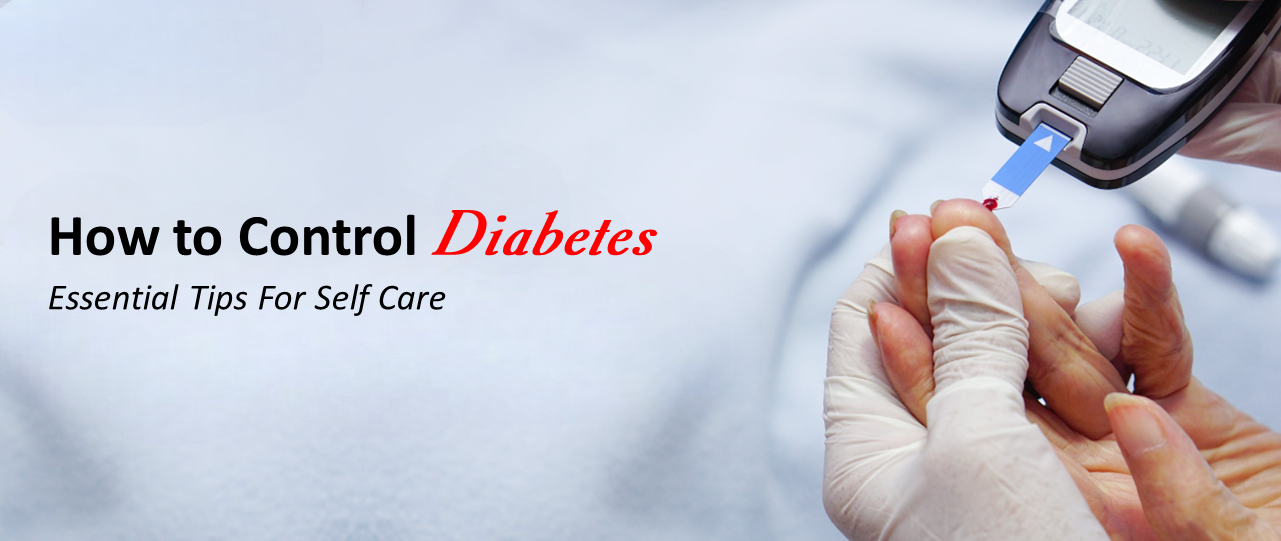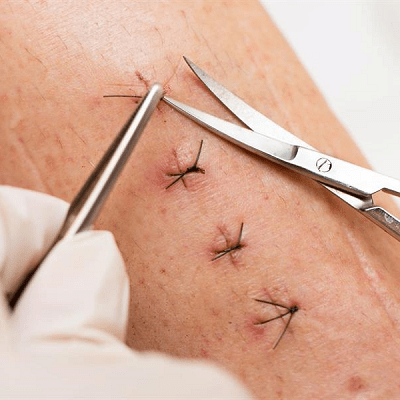How to Control Diabetes: Essential Tips for Self-Care

Strong 8k brings an ultra-HD IPTV experience to your living room and your pocket.
Diabetes is a growing health concern across the globe, but its impact is especially significant in India, often called the "Diabetes Capital of the World." Among the two main types-Type 1 and Type 2. Type 2 diabetes is far more common in India.
Type 1 Diabetes vs Type 2 Diabetes
Type 1 Diabetes is an autoimmune condition in which the body’s immune system attacks insulin-producing cells in the pancreas. It usually begins in childhood or adolescence and requires lifelong insulin therapy. It is relatively rare.
On the other hand,
Type 2 Diabetes develops when the body becomes resistant to insulin or fails to produce enough. This type usually develops in adults but is increasingly being diagnosed in younger people as well.
According to data from the International Diabetes Federation (IDF) and Indian Council of Medical Research (ICMR), over 90% of diabetes cases in India are Type 2.
This alarming rise is due to lifestyle factors such as
- poor diet
- physical inactivity
- obesity
- genetics.
What Happens if Diabetes is Not Controlled?
If diabetes is not under control, it can lead to serious short-term and long-term complications, many of which can be life-threatening or permanently disabling.
Here’s what can happen:
Short-Term Effects of Uncontrolled Diabetes
1. Hyperglycemia (High Blood Sugar):
Symptoms include
- frequent urination
- extreme thirst
- fatigue
- blurred vision
- headache
If left untreated, it can lead to:
- Diabetic ketoacidosis (DKA): More common in Type 1 diabetes, this happens when the body breaks down fat too quickly, producing ketones, which can make the blood acidic.
2. Hypoglycemia (Low Blood Sugar):
This can happen due to excess insulin or medication (especially if meals are skipped).
Symptoms include
- Shakiness
- Sweating
- Confusion
In severe cases, it can cause loss of consciousness or seizures.
Long-Term Complications of Uncontrolled Diabetes
- Heart Disease and Stroke
- Kidney Damage (Diabetic Nephropathy)
- Eye Damage (Diabetic Retinopathy)
- Nerve Damage (Diabetic Neuropathy)
- Foot Problems (Diabetic Foot Ulcer)
But with the right approach, diabetes can be managed effectively.
Self-Care Tips to Manage Diabetes:
1. Monitor Blood Glucose Regularly
Regular checks help you understand how food, physical activity, stress, and medication affect your glucose levels.
Tips:
- Use a glucometer or continuous glucose monitor (CGM) to monitor blood glucose daily.
- Maintain a log to identify patterns and make necessary adjustments.
2. Create a Diabetes-Friendly Diet Plan
What you eat significantly impacts your ability to manage diabetes.
A well-balanced, nutrient-dense diet can help stabilize blood sugar, support weight loss, and prevent complications.
Include the following in your diet:
- Complex Carbohydrates
- Lean Proteins
- Healthy Fats
- Fiber-Rich Foods
- Low Glycemic Index (GI) Foods
Foods to Avoid:
- Refined sugars and desserts
- White bread and processed snacks
- Sugary beverages and sodas
Maintaining a diet chart to control diabetes naturally reduces the risk of glucose spikes and promotes overall health.
For a proper diet plan, get a consultation with a dietitian.
3. Exercise Regularly
Being physically active and doing exercise improves insulin sensitivity and helps lower blood sugar levels.
Recommended Activities:
- Brisk walking or jogging
- Cycling or swimming
- Resistance training
- Yoga and stretching
Many people ask: Can exercise reverse diabetes naturally? While it may not "reverse" diabetes in all cases, consistent exercise can lead to remission in type 2 diabetes, especially when paired with diet and weight management.
4. Stay Hydrated and Sleep Well
Proper hydration and sleep are often overlooked but are essential components of effective diabetes self-care.
Why It Matters:
- Hydration flushes out excess sugar via urine and prevents dehydration.
- Sleep supports hormone balance, including insulin regulation.
Tips:
- Get 7–9 hours of uninterrupted sleep every night.
- Drink at least 3 liters of water every day.
- Limit caffeine as well as screen time before bedtime.
5. Stress Management
Chronic stress can elevate cortisol levels, which in turn can increase blood sugar.
Managing stress is essential in your efforts to manage diabetes effectively.
Techniques:
- Deep breathing exercises
- Meditation or mindfulness
- Listening to music
- Spending time in nature or with loved ones
6. Follow Medications as Prescribed:
- Always take oral medicines, insulin, or other prescribed treatments exactly as directed by your doctor.
- Do not skip doses, and never adjust the dose without medical advice.
- Keep a reminder or schedule to stay consistent with your medications.
7. Know When to Seek Help
Self-care is critical, but professional guidance is equally important. Meet your physician on a regular basis to keep track of your health.
Regular check-ups ensure that your treatment plan remains effective and that any complications are detected early.
Schedule:
- Quarterly A1C tests to measure long-term glucose control
- Annual eye exams and foot checks
- Regular screenings for kidney function, blood pressure, and cholesterol
8. To Lower Blood Sugar Quickly (in Emergencies)
In some cases, you may need to lower your blood sugar fast naturally:
Emergency Tips:
- Drink water to help flush out excess blood sugar.
- Go for a walk to help insulin work more efficiently.
- Eat fiber-rich snacks like raw vegetables.
- Avoid high-carb or sugary foods immediately.
Still, if your glucose is dangerously high, seek immediate medical attention when you experience any of the following symptoms:
- Nausea, vomiting, or abdominal pain
- Shortness of breath
- Drowsiness or hallucinations
- Weakness
- Paralysis on one side of the body
- Chest pain
What People with Diabetes Should Not Do?
Managing diabetes involves more than just taking medication, it also requires avoiding certain habits and behaviors that can worsen the condition or lead to complications.
Here are key things people with diabetes should avoid:
- Avoid fasting, binge eating, or skipping meals, especially when on insulin or oral medications.
- Avoid going long periods without checking your levels or relying only on how you feel.
- Avoid stopping medication or dosage changes without consulting your doctor.
- Avoid walking barefoot, ignoring small cuts or sores, and wearing tight shoes.
- Avoid tobacco in any form and binge drinking.
Controlling diabetes is a continuous process - from monitoring blood glucose and maintaining a healthy diet to managing stress and exercising regularly, every aspect of your lifestyle plays a role in your blood sugar levels.
With awareness, discipline, and timely care, people with diabetes can live long, healthy, and active lives.
Note: IndiBlogHub features both user-submitted and editorial content. We do not verify third-party contributions. Read our Disclaimer and Privacy Policyfor details.







